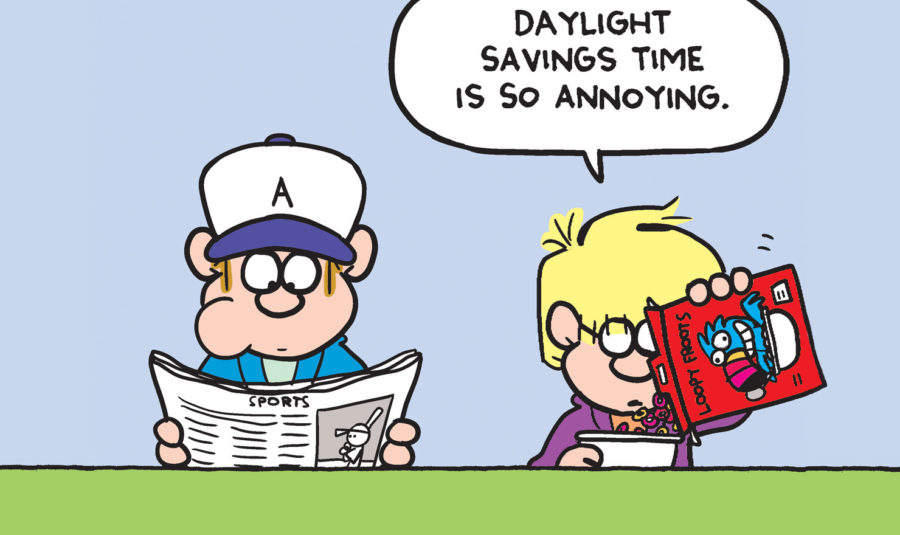As many students undoubtedly noticed, given that they were cheated out of an hour of sleep, March 10 marked the leap forward as a result of Daylight Savings Time for the United States and Canada. For most people, Daylight Savings Time is no more than a minor annoyance, but now is the time to examine the hidden consequences of this annual ritual and ask ourselves if Daylight Savings should actually be done away with altogether.
It is said that Daylight Savings was proposed by Benjamin Franklin in the 1700s as a way to save candles. This alone goes to show how antiquated and obsolete the tradition has become.
Over a hundred years ago in 1918, president Woodrow Wilson codified Daylight Savings Time into law. Its official purpose was to simply save energy. One extra hour of sunlight should warrant one less hour of artificial light. This supposedly leads to reduced energy consumption. In theory, it makes sense.
Does Daylight Savings actually make a difference, though? Unfortunately, evidence points to no.
A recent study of United States homes by Yale University actually found that the reduced energy as a result of Daylight Savings were more than made up for by increased costs generated by additional use of air conditioning and heating. According to this data, Daylight Savings is doing more harm than good by leading to a slight increase in energy consumption which can climb as high as a four percent increase.
It doesn’t stop there. Many people report less sleep than usual the Sunday night after the shift. With everyone feeling the effects on Monday, there is a major decrease in productivity in the workforce. According to The Atlantic, the resulting loss in productivity costs the economy an estimated $434 million per year. Believe it or not, there is also a noticeable spike in workplace injuries during Daylight Savings Time as well.
More light in the morning time might just be a good thing. Research suggests that exposure to light in the early mornings reduces the body’s production of hunger hormones. As a result of Daylight Savings, there is decreased light in the morning time which means you can kiss that new diet goodbye. The effects of the shift can lead to increased cravings and more unhealthy food choices.
Another point to consider regarding Daylight Savings is the fact that increased exposure to sunlight is simply not good for you. UV rays from the sun damage skin and can cause wrinkles and premature aging. In addition to looking worse, you’ll feel worse too. Darker mornings and a lack of sleep aren’t exactly a good combination. People tend to be overall moodier and angrier during Daylight Savings Time.
As the annual debate regarding Daylight Savings rages once again this year, everyone should keep in mind that despite good intentions, the negative effects of Daylight Savings Time outweigh any potential positives. The evidence is mounting year by year, and it’s not looking good. It is time for Daylight Savings Time to come to an end.
photo courtesy The Digital Teacher

























